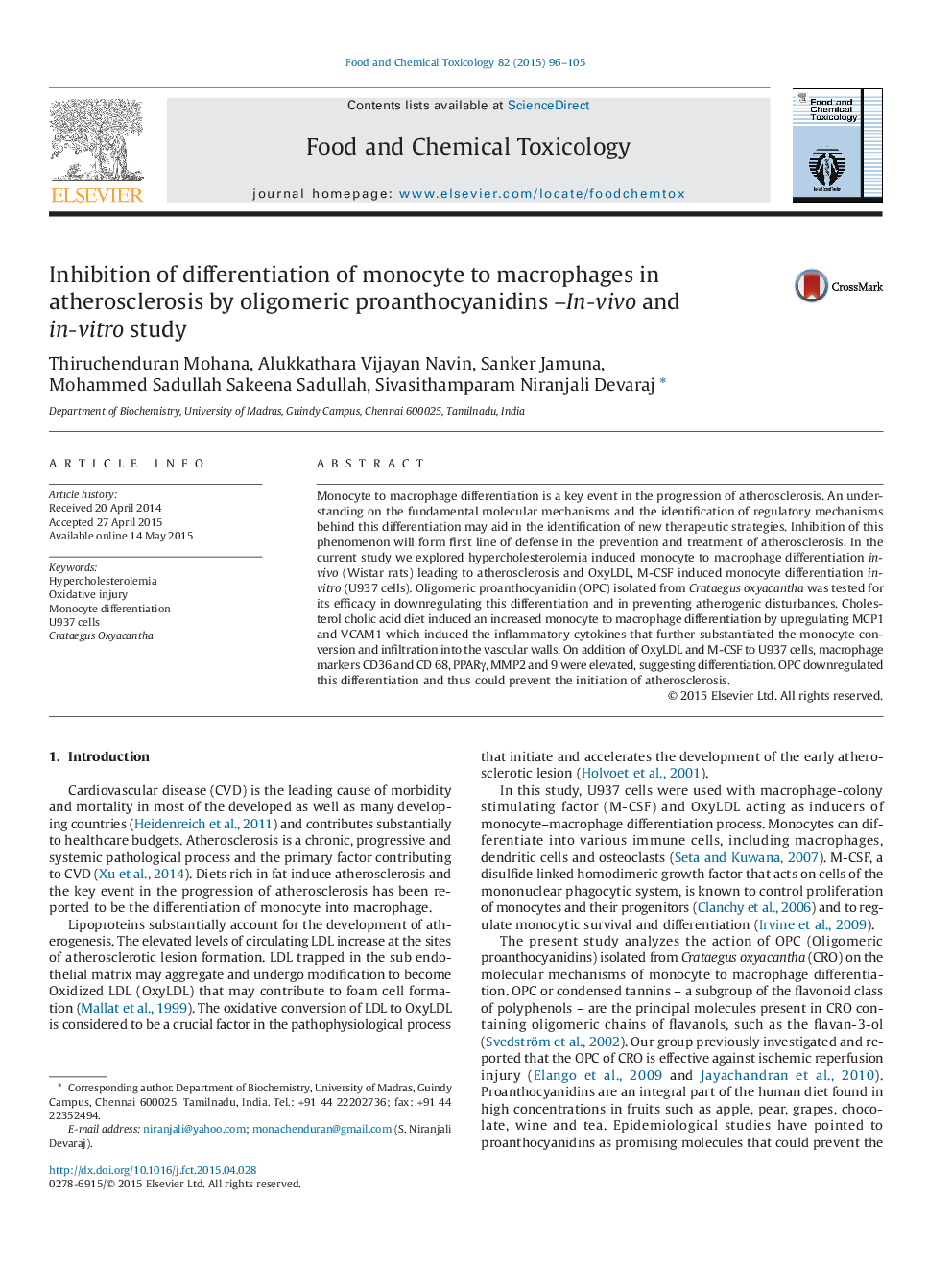| Article ID | Journal | Published Year | Pages | File Type |
|---|---|---|---|---|
| 5849783 | Food and Chemical Toxicology | 2015 | 10 Pages |
â¢Hypercholesterolemia (in vivo) induced monocyte/macrophage differentiation.â¢OxyLDL and MCSF (in vitro-U937 cells) induced monocyte/macrophage differentiation.â¢Inhibition of this differentiation and inflammation by OPC.â¢Efficacy of OPC as a therapeutic agent against atherosclerosis.
Monocyte to macrophage differentiation is a key event in the progression of atherosclerosis. An understanding on the fundamental molecular mechanisms and the identification of regulatory mechanisms behind this differentiation may aid in the identification of new therapeutic strategies. Inhibition of this phenomenon will form first line of defense in the prevention and treatment of atherosclerosis. In the current study we explored hypercholesterolemia induced monocyte to macrophage differentiation in-vivo (Wistar rats) leading to atherosclerosis and OxyLDL, M-CSF induced monocyte differentiation in-vitro (U937 cells). Oligomeric proanthocyanidin (OPC) isolated from Crataegus oxyacantha was tested for its efficacy in downregulating this differentiation and in preventing atherogenic disturbances. Cholesterol cholic acid diet induced an increased monocyte to macrophage differentiation by upregulating MCP1 and VCAM1 which induced the inflammatory cytokines that further substantiated the monocyte conversion and infiltration into the vascular walls. On addition of OxyLDL and M-CSF to U937 cells, macrophage markers CD36 and CD 68, PPARγ, MMP2 and 9 were elevated, suggesting differentiation. OPC downregulated this differentiation and thus could prevent the initiation of atherosclerosis.
